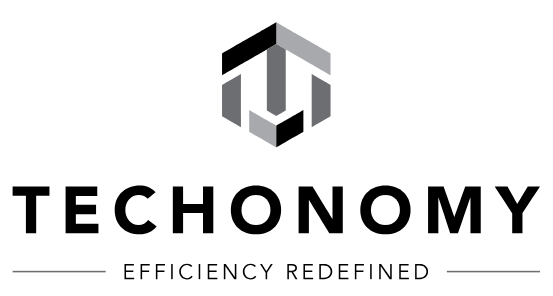While the VA requires most borrowers to pay the VA funding fee, not every borrow must. A handful of exemptions exist, including borrowers who receive compensation for service-connected disabilities. You can pay the VA funding fee upfront with the remainder of your closing costs. Most lenders prefer you pay with a cashier’s check, certified check or wire transfer, as these are the most secure payment types. You’ll pay the VA funding fee at closing as an upfront payment that’s part of your closing costs or by rolling the fee into your mortgage.
FHA 203(k) Loan: Definition, Types, Pros And Cons
The VA loan program provides affordable mortgages the true costs and roi of implementing ai in the enterprise to qualifying borrowers. You’ll apply through a private mortgage lender, though the Department of Veterans Affairs guarantees the loan. Since the VA guarantees the loan, the lender takes on less risk and can offer more favorable terms, such as no minimum down payment or mortgage insurance requirements. Generally, all Veterans using the VA Home Loan Guaranty benefit must pay a funding fee. This reduces the loan’s cost to taxpayers considering that a VA loan requires no down payment and has no monthly mortgage insurance.
VA funding fee and loan closing costs
The VA funding fee is a governmental fee required for many VA borrowers. However, some Veterans are exempt, and the fee varies by VA loan usage and other factors. Here we explore the ins and outs of the VA funding fee, current charts, who’s exempt and a handful of unique scenarios. You can negotiate with the seller to determine who pays for the remaining costs. In some cases, you may not have to pay the VA funding fee at all if the seller agrees to cover part of the closing costs. If you’re using a VA home loan to buy, build, improve, or repair a home or to refinance a mortgage, you’ll need to pay the VA funding fee unless you meet certain requirements.
“Expert verified” means that our Financial Review Board thoroughly evaluated the article for accuracy and clarity. The Review Board comprises a panel of financial experts whose objective is to ensure that our content is always objective and balanced. When two Veterans with VA loan entitlement get a loan together, the funding fee is still in play. But it can wind up working a bit differently in these relatively uncommon cases. A primary consideration is who’s contributing VA loan entitlement.
VA Funding Fee for Refinance Loans
- The funding fee for a Cash-Out refinance is similar to a VA purchase loan, except borrowers cannot lower the VA funding fee by making a down payment or using equity.
- The VA Funding Fee has some nuances so it can be kind of confusing.
- The subsequent use funding fee went from 3.6 percent to 3.3 percent.
- However, fees for all military branches are now equal due to the passing of the Blue Water Navy Vietnam Veterans Act of 2019.
- There are situations where the exemption status isn’t clear cut.
- Veterans Affairs loans are an attractive mortgage option for military veterans, active-duty service members and their eligible surviving spouses.
If two Veterans contribute entitlement, but one of them is exempt from paying the funding fee, the funding fee on their loan is cut in half. If the same set of Veterans seek a VA loan, but the exempt veteran is not contributing entitlement, their loan would carry the full funding fee. Mortgage lenders have no control over who must pay the VA funding fee or the specific amount.
VA loans offer eligible Veterans and military spouses unique benefits to help them achieve homeownership. From $0 down and no PMI to consistently lower than average interest rates, the VA loan is often one of the best choices on the market today. The VA funding fee ranges from 1.25% to 3.3% of the total loan amount. Let’s look at how the funding fee works and how the VA determines what you pay.
The VA funding fee exemption is for veterans with service-connected disabilities. In some cases, you may qualify for a refund even after your loan closes. On purchase and construction loans, veterans taking out a VA loan for the first time will receive a better rate than repeat or subsequent users of the benefit. However, you can also lower your rate by making a larger down payment. Review the VA funding fee rate charts on this page to determine the amount you’ll have to pay. Down payment and VA funding fee amounts are what is margin in forex expressed as a percentage of total loan amount.
Most borrowers have to pay a funding fee when they take out a VA loan, adding to the overall cost of the loan. However, the VA funding fee reduces the burden on taxpayers and allows VA loans to continue to offer mortgages with no down payment requirement. Keep in mind that you will still have to pay other fees and closing costs when buying a home – even with a VA loan. The how to buy web 3.0 tokens VA funding fee functions as a replacement for mortgage insurance, which is an ongoing monthly cost.
VA Funding Fee: Complete Explainer with Charts and Exemptions
The information that we provide is from companies which Quicken Loans and its partners may receive compensation. This compensation may influence the selection, appearance, and order of appearance on this site. The information provided by Quicken Loans does not include all financial services companies or all of their available product and service offerings.
Article content appears via license from original author or content owner, including Rocket Mortgage. The VA funding fee is an upfront cost that military borrowers pay to the U.S. Department of Veterans Affairs (VA) when they close on a VA loan.
